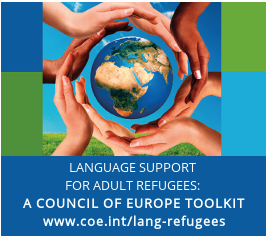(1) Delighted to be at the Nordic Seminar on sign language interpreting today. Just out of a workshop that looked at some key issues we face when seeking to interpret with deaf people who are refugees in mental health contexts.
(2) The intersection of linguistic deprivation, the presentation of what may be disordered thinking in a sign language, the lack of specialist training for #1ntSL in this space, and the need to train skilled deaf people as #1ntSL in these settings is just the tip of the ice-berg.
(3) General questions that remain include - what do we do in the moment? How do we reflect atypical engagement (avoidant eye-gaze, repetition of forms that is not a function of grammar, atypical syntax, lack of affect marked non-manually, etc.)
(4) How do we articulate concerns about what we see to the (mostly hearing) healthcare specialists who are interviewing/evaluating the person?
(5) There are systemic issues - we need more deaf healthcare specialists, especially in the mental health sphere; we need deaf #1ntSL in this space too - but they too need specialist training; hearing health care specialists need to know more about sign langs & deaf communities
(6) AND about the work of interpreters (we make decisions, and they may sometimes inadvertently mask or distort); And we need some tools to help us articulate what we are seeing (or NOT seeing)....
(7) ... so that we can bridge the gap between what we see and what the clinical practitioners need to know - and understand the significance of - in order to make culturally/linguistically informed evaluations.
(8) Tools that may help interpreters with language to consider aspects of fluency is the Common European Framework of Reference for Languages from @ECMLCELV @ProSignECML & @coe #CEFRCV which includes descriptions for a range of language usage for both signed & spoken languages.
(9)Both are available in English & International Sign - and can be localised. See
https://www.ecml.at/Thematicareas/SignedLanguages/ProSign/AbouttheCEFR/tabid/4280/language/en-GB/Default.aspx
https://www.ecml.at/Thematicareas/SignedLanguages/ProSign/AbouttheCEFR/tabid/4280/language/en-GB/Default.aspx
(10) See: https://rm.coe.int/common-european-framework-of-reference-for-languages-learning-teaching/16809ea0d4
(11) See: https://rm.coe.int/common-european-framework-of-reference-for-languages-learning-teaching/16809ea0d4
(12) And another document that may be helpful more generally may be: https://www.coe.int/en/web/language-support-for-adult-refugees/guidelines#2. (esp. Sections 6 and 7)
(13) We also need to amplify the need for specialist mental health services to support #deaf people. Ireland is particularly bad in this regard.
(14) Given #Covid & increased attention to #domesticviolence & other #genderbasedviolence - we know that there will a surge in demand. We need to get ready - and as a colleague working in @CrisisTrans notes - we need to #BuildBackFairer There is SO much to do. (end).
I realise that I didn't thank the great presenters who prompted this thread of mine! Thank you to Virve Viljanen & Maarit Widberg-Palo for a thought provoking session. It is also heart wrenching to think about what the gaps, the lack of joined-up thinking means for real people.

 Read on Twitter
Read on Twitter




